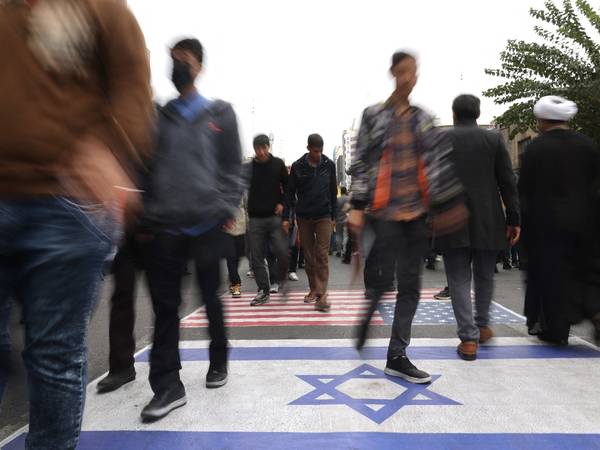A growing number of commentators in Iranian media are criticizing hardline politicians for rhetoric they say has strained foreign relations and deepened the country's isolation.
A notable example of such remarks is former President Mahmoud Ahmadinejad's statement advocating for "wiping Israel off the map." Many believe this comment significantly escalated hostility between Iran and Israel, though it was rooted in Ayatollah Ruhollah Khomeini’s stance toward the Jewish state.
Ahmadinejad is also known for dismissive remarks about the significance of UN resolutions against the Islamic Republic, which ultimately led to economic sanctions that severely affected Iranians' livelihoods for nearly 15 years.
Former reformist lawmaker Mohsen Mirdamadi has emphasized that Iranian officials must refrain from making such statements to support and advance diplomatic efforts with the West.
Although some Iranian officials, including Supreme Leader Ali Khamenei, do not have official spokespersons, Iranian media often publish statements by lower-ranking officials that can undermine state affairs and disrupt the leadership's plans for advancing their agenda.
The absence of an official spokesperson for Khamenei recently sparked controversy in the Iranian parliament over whether Vice President Mohammad Javad Zarif should be dismissed, as demanded by his ultraconservative lawmakers. Earlier, Mehdi Fazaeli, a senior official in Khamenei's office, quoted the Supreme Leader as opposing challenges to Zarif's qualifications. However, ultraconservatives argued that Fazaeli was not an authorized spokesperson for Khamenei, casting doubt on the statement's credibility.
In 2018, the Iranian government under former President Hassan Rouhani went without a spokesperson for 179 days—just one day short of six months. At the time, the conservative Mehr news agency sharply criticized Rouhani, claiming that his failure to appoint a spokesperson signaled an unwillingness to be accountable to public opinion.
However, it is not clear is certain provocative statements are the result of bad judgement or are designed to give mixed signals to both the Iranian public and foreign audiences.
In a recent example of issuing statements seemingly at odds with the government's broader policies, Iran's nuclear chief, Mohammad Eslami, announced, "We have begun injecting gas into several thousand advanced centrifuges, which is part of the nuclear industry's development program, and have put them into operational circuits." This remark appeared to disregard the fact that it directly contradicted a recent IAEA resolution condemning Tehran for violating its international obligations under the 2015 nuclear deal, and the government’s declarations that does not seek nuclear weapons.
The statement was made two days before a meeting with the United Kingdom, France and Germany to reduce the tensions between Tehran and European powers.
The Islamic Revolutionary Guard Corps (IRGC) has an official public relations office led by a chief who acts as a spokesperson. However, various commanders frequently make incendiary statements that do not necessarily align with the policies of the government or the IRGC itself. In recent months, while Khamenei has occasionally been cautious to avoid provoking Israel or the West, IRGC officers have repeatedly issued threats. At times, total news blackouts on military or nuclear issues suggest that orders for silence may have come from higher authorities. Yet, these periods of quiet are often short-lived, as outspoken officers tend to make remarks at any moment.
In an interview, Mirdamadi emphasized that Iranian officials and military commanders should refrain from making costly remarks, particularly on foreign policy matters. He stated, "They often chant impractical slogans, leaving the nation to bear the heavy consequences of mistakes it did not commit. In the recent incident leading up to the IAEA resolution, some politicians made unnecessary but highly damaging statements."
Mirdamadi was referring to remarks like the one made by former deputy judiciary chief Mohammad Javad Larijani who suggested that Iran can make a nuclear bomb in 24 hours.
Mirdamadi also criticized Iran's approach, stating, "We should neither underestimate nor overrate the country's capabilities. We need to be realistic and recognize that Iran cannot singlehandedly change the world order. There are matters beyond Iran's power or authority, and it is not in our interest to define the country's priorities in a way that necessitates confrontation with other nations, particularly major powers."
Ironically, Mirdamadi himself was one of the leaders of the Iranian students who occupied the US embassy in Tehran in 1979, holding over 50 American diplomats hostage for 444 days, an incident that set the country on its course of foreign confrontations.
